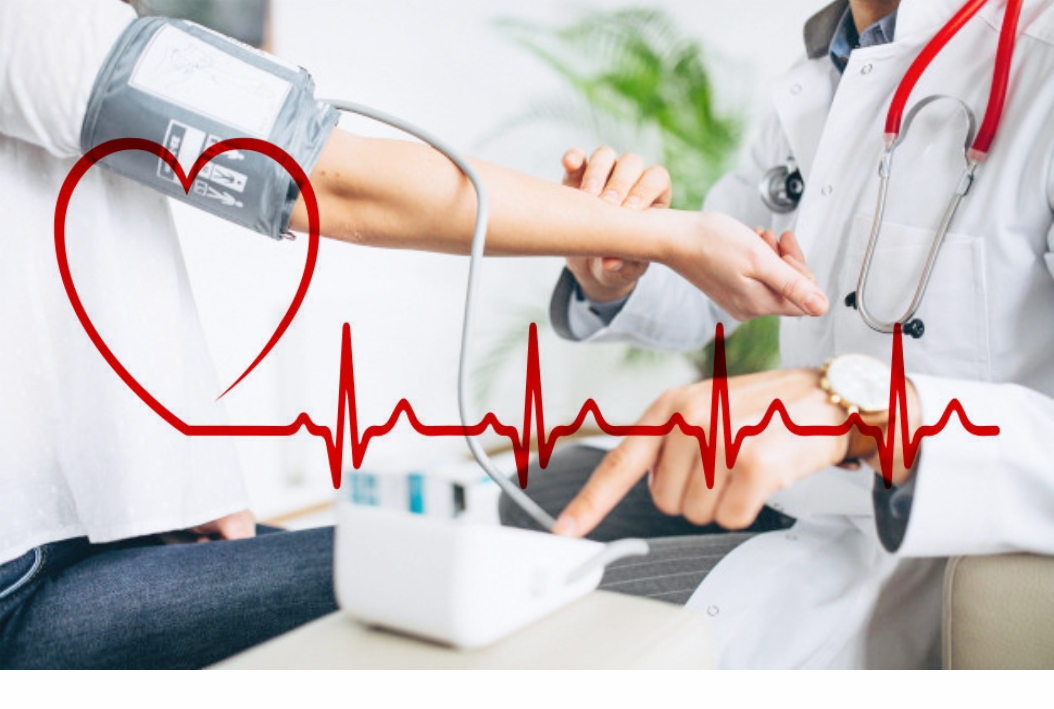

Hypertension makes us all hyper on diagnosis, is a long- term medical condition in which the blood pressure in the arteries is high and remains persistently elevated. It significantly increases the risks of heart, brain, kidney and other diseases. An estimated 1.13 billion people worldwide have hypertension. It is a major cause of premature death worldwide.
WHEN TO SEE A DOCTOR?
Symptoms make diagnosis more real, but unlike other illnesses, hypertension rarely causes symptoms. Having no alarming symptoms, it is ominously referred to as a silent killer. One in five adults is unaware of it. Occurring silently, painlessly and without warning, many don’t recognize what they have until they experience its inevitable organ damaging effects. For this reason, it is essential that blood pressure is measured regularly. Under severe cases, headaches, chest pain, shortness of breath, insomnia, nose bleeds, fatigue, nausea, vomiting, confusion, and chest pain might occur. The only way to detect hypertension is to have a health professional measure blood pressure. Having blood pressure measured is a quick and painless process. Thus, regular checkups are the key to prevention.
HOW TO KNOW IF I AM AT RISK?
Although there are no known causes for hypertension, risk factors include:
- Age: The risk of high blood pressure increases as you age.
- Sex: Men are more prone to high blood pressure when compared to women.
- Family History: High blood pressure is a hereditary condition. You are more likely to get it if your parents or grandparents had it.
- Lifestyle: Having a sedentary lifestyle, lack of physical activity and unhealthy eating habits increases the chances of hypertension.
WHAT IF MY HYPERTENSION IS UNCONTROLLED?
Among other complications, hypertension can cause serious damage to the heart. The excessive pressure on your artery walls can damage your blood vessels, as well as organs in your body. The higher your blood pressure and the longer it goes uncontrolled, the greater the damage. Uncontrolled high blood pressure can lead to complications like:
- Heart attack which occurs when the blood supply to the heart is blocked and heart muscles die from lack of oxygen.
- Stroke which occurs when the blood vessel in the brain gets ruptured leading to bleeding.
- Chest pain, also called angina.
- Heart failure, which occurs when the heart cannot pump enough blood and oxygen to other vital body organs.
- An irregular heartbeat that can lead to sudden death.
- Dementia where narrowed or blocked arteries can limit blood flow to the brain.
WHAT CAN I DO TO PREVENT OR TREAT HYPERTENSION?
Along with regular checkups, routine medication and follow-ups, these are the things one should include to manage hypertension effectively:
- Reduce sodium: Watch on your sodium levels! Aim for less than 1tablespoon of salt each day. Even a minimal reduction in sodium can help lower your BP.
- Read your food labels: Canned foods, processed and packaged foods are a source of invisible sodium intake. Read the fine print, it could be crucial to your health.
- Increase intake of potassium-rich food: Potassium helps your kidneys get rid of more sodium through your urine. This, in turn, lowers your blood pressure. Green leaves, avocado, plums, melons are a great source of this mineral.
- Manage stress: Try to reduce stress as much as possible. Practice meditation, deep breathing regularly.
- Physical Activity: Include physical activity as a part of everyday lifestyle. Weight loss will directly help manage your blood pressure levels.
- DASH diet: Dietary approach to stop hypertension emphasizes on intake of fruits, vegetables, whole grains, poultry, fish and less saturated and trans fat to maintain normal blood pressure level.
Bottom line: By Inculcating these small lifestyle modifications, proper dietary management, early detection, and frequent screenings, you can combat high blood pressure like a pro.